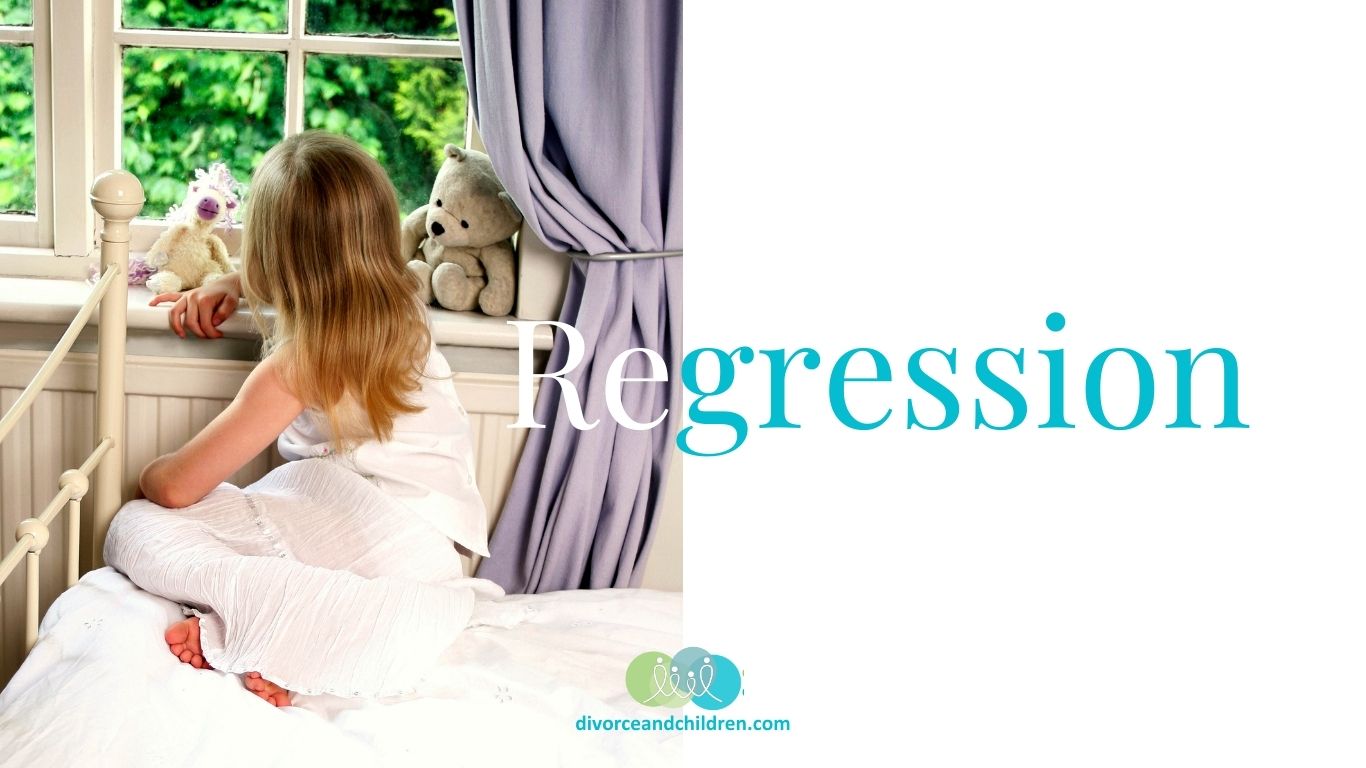Regression: My child was potty trained now she’s wetting again. Is is because of the divorce?

Q – “I’m recently divorced. Before the break up my child was potty trained now she is wetting again. Is it because of the divorce? What do I do?
A – When children get stressed out and overwhelmed it’s not uncommon for them to take steps backwards developmentally. Maybe you just got Johnny to sleep without a night-light and now he’s totally freaked out whenever he has to go into a dark room. Shelly ditched the “binky” but now wants it back. Eleven-year old William has taken to crawling in your lap and begging you to read the bedtime story that he adored when he was five. When kids falter developmentally it’s often referred to as regression.
Simply put, regression is a coping mechanism. As a child’s level of anxiety increases, one way they may manage those feelings is by returning to a behavior that is associated with a time when things felt safe. From their perspective, if life was pretty good when I sucked my thumb perhaps if I start doing that again I’ll feel better. It’s not a conscious choice but rather a reaction to the pressure or stress of big changes.
What do you do?
Take it in stride
When kids take steps backwards, there’s no reason to panic. Instead view it as your child’s way of letting you know they’re feeling insecure.
Avoid disciplining
If no major rules are being broken, avoid disciplining or instilling consequences for the behavior. Do your best to assure your child everyone has set backs from time to time. Whatever you did to help your child accomplish this milestone the first time around go back and do it again.
Take note of other factors
It may also help to take note of what your child’s regression may be linked to.
Things worth considering
- Is the regressed behavior connected to other events or specific times? For example, does your child seems more anxious at bedtime or when transitioning between households?
- Is there significant tension between you and the other parent?
- Is your child adjusting to other significant changes in addition to the divorce? Such as: a change in schools, residence, schedule or new people in his or her life?
Help your child develop better coping skills
Work with you child on learning other more positive ways of handling their anxiety or upset. Keep in mind change takes time. To help your child transition into using other ways of coping, make time to practice the skill with them. It can also be very beneficial to limit the number of changes children are dealing with at once while maintaining a consistent routine and daily schedule in your home.
Steer clear of blaming the other parent
Sometimes when children regress the tendency to want to blame each other rears it’s ugly head. This can be intensified especially if one parent is dealing with more of the regressed behavior than the other. Even if you strongly feel that some responsibility rests on the other parent’s shoulders, pointing fingers won’t help your child. Do your best to provide your child with a stable and predictable home environment and work collaboratively to support your child moving forward developmentally.
Want to connect with other parents? Consider joining our community on Instagram, LinkedIn and Facebook.





